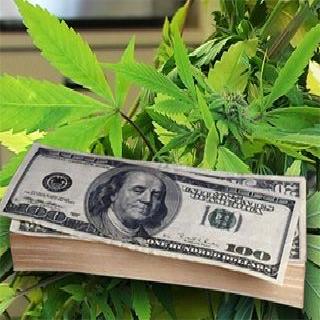 By Chris Roberts Wednesday, Jun 15 2011
By Chris Roberts Wednesday, Jun 15 2011
It’s not every day that municipal regulations inspire local pride, yet some San Francisco medical marijuana advocates are boastful of the Medical Cannabis Act, the 2005 rules that govern the city’s 26 medical cannabis dispensaries. Our rules are the best in the state, they claim, and a model copied by other cities in California. That doesn’t mean they are perfect; city planning leaders have asked the Board of Supervisors to overhaul the medical marijuana laws, citing a “saturation” of dispensaries in the Mission and South of Market – never mind that the act’s restrictive zoning requirements encouraged this.
But such pride isn’t swelling in advocates’ hearts for state marijuana laws, which have become an object lesson in the unintended consequences of charity. The Board of Equalization recently let some dispensaries know that they owe back taxes on medical marijuana given away to low-income patients, a tradition called “compassion” that advocates claim is necessary as neither MediCal nor Healthy San Francisco will pay for a gram of pot the way insurance covers, say, OxyContin. The BOE insists it is owed a cut on any marijuana grown or bought by the dispensaries with the intent to sell – whether it was sold or not. That means some dispensaries owe for years’ worth of giveaways at $20 per donated $200 ounce, whether the pot was top-shelf or next-to-worthless cooking shake.
And 10 patients or more can’t bond together and grow pot collectively, as they’re supposed to be able to do under the 1996 Compassionate Use Act, without being considered a “dispensary” under San Francisco law. That means a dozen people growing one plant each in their living rooms must jump through the same hoops a 10,000-patient medical marijuana storefront must do by the Department of Public Health. As a result, the city’s one medical marijuana charity group – the Mission Street—based Axis of Love – can no longer offer medicated brownies or donated cannabis at its community center (but members can acquire donated medicine and distribute it to nine people or fewer).
BOE spokeswoman Anita Gore says this is all fair and equitable. Marijuana dispensaries get the same treatment as all other retailers, which are charged a “use tax” for inventory bought from a wholesaler with the intention to be sold, only to be given away later. That’s partly the problem, says Matthew Cohen, who runs Ukiah-based Northstone Organics, a farm-to-door medical pot delivery service. Medical cannabis laws, state and local, make no distinction between a commercial-size enterprise and a couple of people with a few plants for their back pain. “We need tax credits,” says Shona Gochenaur, who heads up Axis of Love, “not penalties.”









